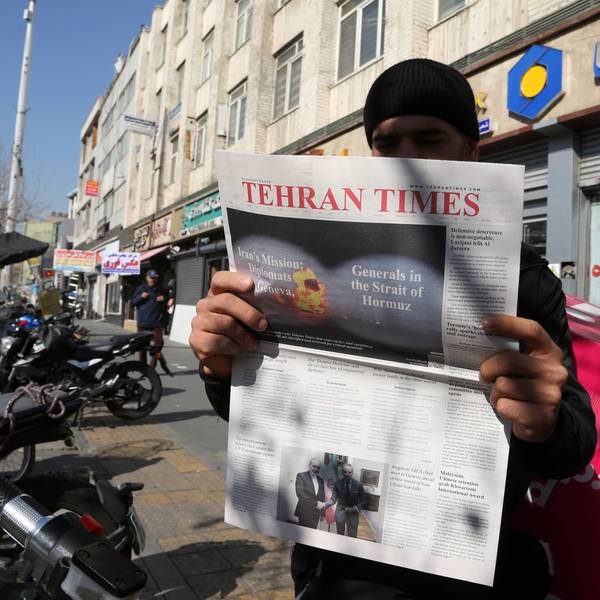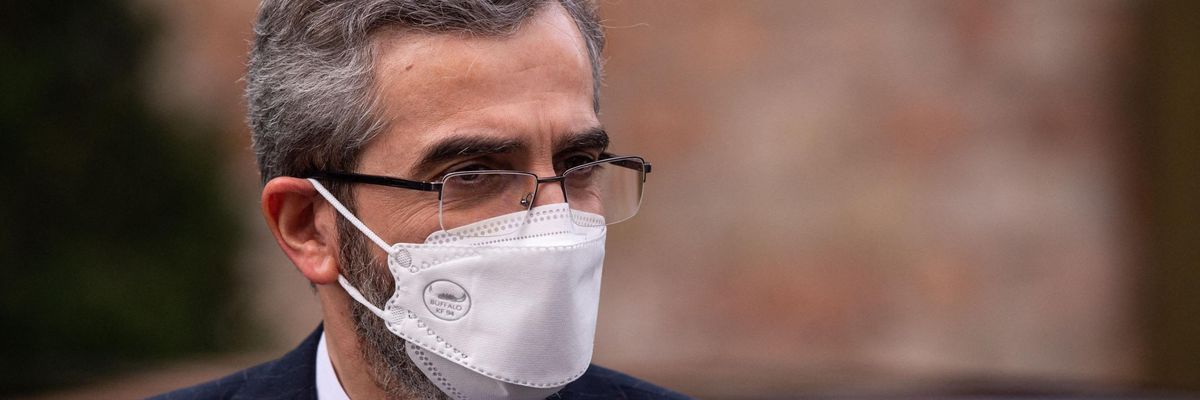As negotiations regarding Iran's nuclear program convened in Vienna on Monday, more than three years after the U.S. walked away from an international agreement, anti-war groups called on the Biden administration "to choose the proven path of peace" and re-enter the pact for the benefit of Iranians, Americans, and the global population.
"We've delayed long enough," said Sara Haghdoosti, deputy director of the U.S.-based Win Without War. "For the sake of peace, for the sake of prosperity, for the security of people in Iran and the United States alike, it's time to put differences aside and return to the Iran nuclear deal."
"The people of Iran have for too long been forced to struggle on two fronts: against a repressive government at home, and a deadly regime of sanctions and warmongering from abroad."
As a presidential candidate, President Joe Biden promised to restore the nuclear agreement--officially called the Joint Comprehensive Plan of Action (JCPOA)--which from 2015 until 2018 placed restrictions on Iran's civil nuclear technology program while lifting harsh economic sanctions on the country.
The agreement was a "stunning success," noted Haghdoosti, but with Biden nearly a year into his presidency, the "hard-fought gains" of the JCPOA have been reversed--"helping to fuel a hardliner victory in national elections, unfettering Iran's nuclear program, and causing immense suffering for everyday people."
Iran's economy grew by 12.5% in 2016 after the Obama administration brokered the JCPOA, but since former President Donald Trump abandoned the deal in 2018, sanctions affecting the country's energy and industrial metals sectors have left Iran's currency dropping in value and the unemployment rate rising. Last month, Biden faced criticism for imposing fresh sanctions.
"The people of Iran have for too long been forced to struggle on two fronts: against a repressive government at home, and a deadly regime of sanctions and warmongering from abroad," said Haghdoosti. "In the past years, this wanton cruelty reached a new extreme, as first Trump, and then Biden, refused the global call to lift sanctions even during an unprecedented pandemic. Maintaining these sanctions is not only ineffective, it's deeply inhumane."
Major news outlets on Monday published headlines suggesting Iran must prove to the U.S. and other countries that it is "serious" about returning to the JCPOA, despite the fact that the Trump administration abandoned the deal--leading Win Without War to issue a reminder about U.S.-Iran relations in the past several years.
Assal Rad, senior research fellow with the National Iranian American Council (NIAC), noted that U.S. and Israeli officials have spent decades claiming Iran is on the brink of developing a nuclear bomb--though Iran has maintained its research and development of nuclear energy is for peaceful purposes.
"If the U.S. is actually concerned about the supposed nuclear threat posed by Iran," tweeted CODEPINK, "then it could always, you know, rejoin the Iran nuclear deal."




